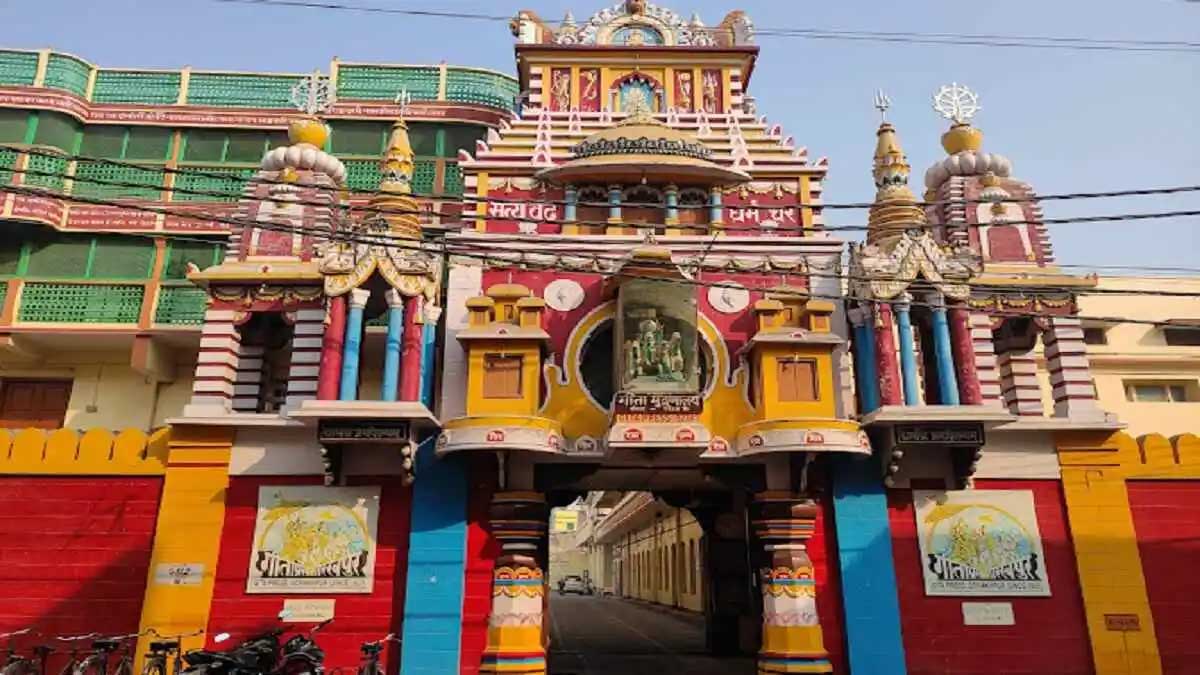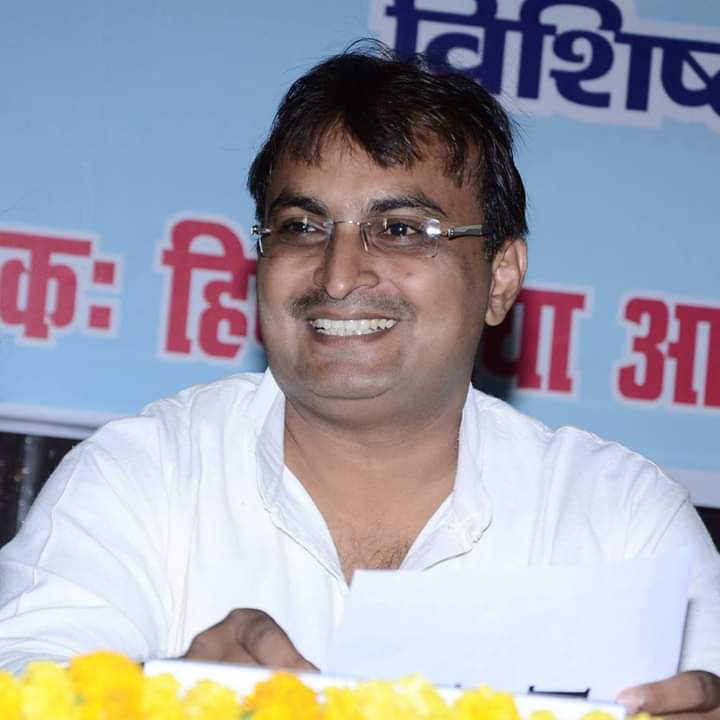The central government has decided to award the Gandhi Peace Prize for the year 2023 to Gita Press. This is one of the “achievements” of Gita Press in its 100th year. Gorakhpur-based Gita Press was founded by Jaidayal Goenka and Hanuman Prasad Poddar in 1923 to publish Hindu scriptures and make them available to the public at low prices. Thus, from its very outset, the institution was dedicated to the cause of Hindu revivalism. The Hindu religious scriptures are, basically, codes of conduct, enunciated through mythology. This code of conduct seeks to strengthen the varna and caste system and patriarchy. Its objective is to perpetuate Manu’s social order, which seeks to oppress the women, the Shudras and the Dalits. Hence, Ambedkar had said that the scriptures lend legitimacy to the varna-caste system; they declare that the varna-caste system, inequality and discrimination are divine ordainments. That is the reason Ambedkar participated in the burning of the Manusmriti in public on 25 December 1927. He also said that the Hindu religious scriptures should be blown up with dynamite.
The teachings of Christian missionaries and Western education during the colonial rule made women, Dalits and Shudras realize that they were shackled and they began enquiring into the formulations in these scriptures that promote and legitimize hypocrisy, superstitions and exploitation. The brahmanical Dwijs saw a serious danger in this endeavour and to counter it, they came up with a range of organizations and institutions meant to lend strength to Hindutva, that is the varna system and patriarchy. Gita Press was one such institution.
In contrast, Ambedkar was at the forefront of an ideological and social movement that stood for equality and justice. After studying abroad, he briefly took up the position of military secretary of Baroda State and taught at Bombay’s Sydenham College. But he resigned, studied further, trained to become a lawyer and decided to work for the emancipation of the Dalits. He began his campaign for freeing the Dalits from social slavery and oppression in the 1920s. He led the Mahad movement for establishing the right of the Dalits to use public sources of water. He sowed the seeds of consciousness among the Dalits through the Temple Entry Movement. Thanks to these movements, the Dalits developed the courage to fight. He also succeeded in making the Dalit community a political force through the Round Table Conferences.
Gandhi and his supporters were opposed to Ambedkar’s attempts to turn the Dalit community into a distinct political and social category. When Gandhi went on a fast unto death at the Yerwada Jail to protest against the colonial government’s granting of a separate electorate to the Dalits, Ambedkar and other Dalit leaders received threats. The Hindu revivalists and zealots were violently opposed to Ambedkar’s criticism of Hinduism and its books.

Ambedkar became even more intolerable to them when he was given the job of drafting the Constitution of India. Karpatri, founder of the Ramrajya Parishad, attacked Ambedkar in extremely crude, insulting language. Hindu organizations opposed the Hindu Code Bill drafted by Ambedkar. Demonstrations were held outside his home and the demonstrators included representatives of the Gita Press, Gorakhpur. Gita Press has been a backer of Hindu revivalism, the varna system and patriarchal social order.
Hanuman Prasad Poddar developed close ties with Mahatma Gandhi. In 1936, Poddar met Gandhi and Jamnalal Bajaj. Poddar wanted Gandhi’s blessings for a magazine called Kalyan. Gandhi suggested to Poddar that Kalyan should not publish advertisements and book reviews and this advice has been followed to date. Like Gita Press, Gandhi, too, talked about the Sanatan Dharma, but he wanted to make it inclusive. He wanted to purge the varna system of inequality and discrimination. He launched a reform movement for the elimination of untouchability and for assimilating the Dalits into the Hindu fold. Poddar and Gita Press did not agree with Gandhi’s beliefs and were against his reform movement. Gita Press has been an ardent supporter of not only the varna-caste system but also untouchability. It believes that a person is born as an Untouchable because of the sins committed by him in their earlier birth and hence untouchability should not be done away with. The differences between Gandhi and Poddar on this issue grew with time.
Gita Press bitterly criticized Gandhi’s social reform movement. Poddar and Gita Press flayed Gandhi for launching a movement for Dalits’ right to enter temples and for signing the Poona Pact. It may be mentioned here that Gandhi’s attitude towards the Dalits changed after the Round Table Conferences and the Poona Pact (1932). He launched the Harijan Uddhar programme. These endeavours by Gandhi rattled the brahmanical Dwijs and Hindutva organizations, who made an attempt on Gandhi’s life in 1935. Subsequently, Gandhi got disillusioned with the caste system and his appreciation for Ambedkar grew. In the evening of his life, he even began supporting inter-caste marriages.
Be that as it may, Gandhi’s Sanatan Dharma believed in equality of all religions and in emancipation of the Dalits. The Hindu fundamentalists and revivalists were against it. That led to six physical attacks on Gandhi. Ultimately, on 30 January 1948, Gandhi was assassinated by Nathuram Godse at Birla House, Delhi. During his trial, Godse said that he was upset because at the instance of Gandhi, Rs 55 crore was paid to Pakistan by the Government of India. One can well ask that if that was so, why five attempts were made earlier on Gandhi’s life, because Pakistan did not exist then!
The attempts on Gandhi’s life were thus clearly a fallout of his attempts to emancipate Dalits. It may be mentioned here that Hanuman Prasad Poddar was also arrested in connection with Gandhi’s murder. It has been confirmed that Poddar was in Delhi on the day of Gandhi’s murder. That is not all. Poddar was present to welcome M.S. Golwalkar, an accused in Gandhi murder case, when the latter reached Benaras after his release from jail. How can anyone justify the awarding of the International Gandhi Peace Prize to Gita Press, an institution founded by Poddar?
(Translated from the original Hindi by Amrish Herdenia)
Forward Press also publishes books on Bahujan issues. Forward Press Books sheds light on the widespread problems as well as the finer aspects of Bahujan (Dalit, OBC, Adivasi, Nomadic, Pasmanda) society, culture, literature and politics. Contact us for a list of FP Books’ titles and to order. Mobile: +917827427311, Email: info@forwardmagazine.in)





